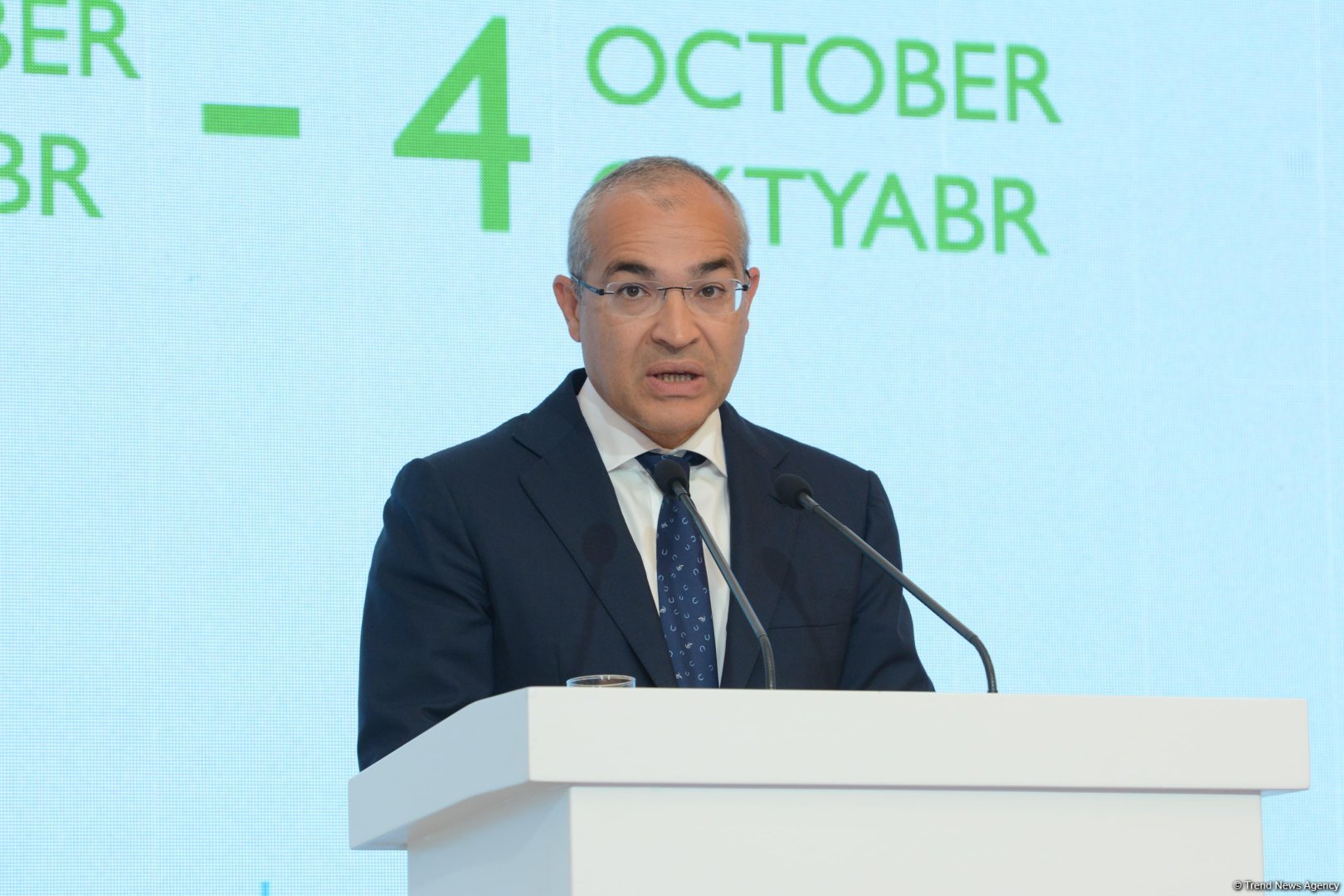BAKU, Azerbaijan, September 30. The Climate Finance Action Fund can be a game changer in bridging the gaps, Azerbaijan’s Minister of Economy Mikayil Jabbarov said at the opening of Baku Climate Action Week today, Trend reports.
Jabbarov mentioned that COP29 will put its nose to the grindstone to secure financing mechanisms for the energy transition.
"We aim to engage all stakeholders in this process and achieve inclusive discussions. To do this, it is necessary to involve countries, international organizations, financial institutions, and major energy companies in COP29, and to organize discussions on incentives to attract private investment in low-carbon business solutions," he also said.
Jabbarov noted that Azerbaijan is pulling out all the stops with significant moves in the energy transition game.
"One of the 14 key initiatives in the COP29 action plan is the creation of the Climate Finance Action Fund (CFAF). This fund can play a significant role in addressing existing gaps in climate financing. The fund's capital is expected to come mainly from fossil fuel-producing countries, as well as companies involved in oil, gas, and coal extraction.
The primary goal of the fund is to increase the contribution of countries rich in fossil fuel resources and companies in this sector to the 'green' transition, and to invest in combating climate change in developing countries and small island states," emphasized the minister.
According to him, Azerbaijan is of the mind that countries overflowing with resources ought to step up to the plate in the battle against climate change, and this move could go a long way in bridging the gaps in climate financing.
"The fund aims to raise $1 billion in capital and will involve at least 10 donor countries," said Jabbarov.
The minister pointed out that while the extraction sector remains important, significant positive changes have taken place in the country's socio-economic landscape due to extensive socio-economic reforms.
"Despite the decline in oil and gas production, positive economic growth dynamics, particularly in the non-oil and gas sector, have been maintained, and economic growth has continued even in the post-pandemic years.
This process includes expanding budgetary expenditures, supporting entrepreneurship, encouraging investment and exports, and developing the non-oil industry," Jabbarov explaine.
He emphasized that structural reforms were the name of the game for success.
"From 2011 to 2023, the average annual economic growth rate in the country was 1.5percent, including 4.4 percent in the non-oil and gas sector. In the first eight months of this year, the non-oil and gas sector saw a seven-percent economic growth," added the minister.
To note, Baku will host Action Week for the first time from September 30 to October 4, 2024.
The event will form the basis of the climate agenda ahead of COP29 in Baku in November.
Stay up-to-date with more news at Trend News Agency's WhatsApp channel







